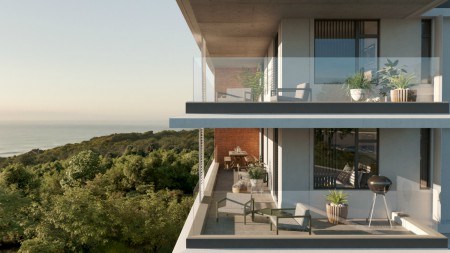There’s a myriad of options when it comes to investing our money, but property has remained an interesting option that has stood the test of time. There may also be more than a few Bitcoin investors who are privately wishing that they had put down a deposit on property instead.
So says Gareth Bailey, Pam Golding Properties area principal for Durban Coastal, who adds: “Property is relatively easy to understand. It is also a forced saving as owners can’t easily shirk bond repayments by, for example, deciding to rather go on an overseas holiday. The same is not true for many other cash-based or flexible-contribution investments. It’s also harder to splurge profits out of a property investment as it requires refinancing or selling the property.
“From a cashflow point of view, the monthly outgoings are mostly fixed from the time of purchase since the bond instalment, barring major interest rate changes, is mostly stable. By contrast, rental income escalates consistently over time. This annual escalation ranges from 5% in a weaker market to 10% during the good times. Most importantly, rental income should keep going up while bond instalments should remain constant, creating an increasingly positive cashflow stream over time.
“There are also tax benefits as the main expense, being the interest on the bond, is tax deductible. But by far the most attractive characteristic of property investment is its ability to be leveraged. Simply put, leverage involves using the banks’ money to magnify the potential returns of property investment. For example, a purchaser may invest 30% of his own money and the bank may finance the remaining 70%, yet the purchaser benefits from 100% of the returns on the property.”
Bailey says for many people, buying their first investment property will require them to follow the first two principles shared by George Clason in his classic financial book – The Richest Man in Babylon. Namely, to ‘pay yourself first’ and to ‘live below your means’. Any deposit saved will be richly rewarded as the bank, subject to credit approval, will pay three or four times as much toward purchasing the property in the form of a mortgage bond.
“Property investment offers two types of return – capital, which is derived from property price growth, and income - also known as yield, which is derived from rental income. When choosing a property, it is important to decide on which type of return you are seeking to prioritise. Properties suited best to capital growth often cost more and offer a lower yield while properties suited better to maximising yield often cost less and offer lower capital growth prospects.”
Bailey says an example of the former may be a seafront apartment in the new Sibaya precinct on the KwaZulu-Natal North Coast while the latter may be an entry-level flat in the uMhlanga Gateway area.
 This 2-bed apartment in Coral Point Sibaya is priced at R3m through Pam Golding Property
This 2-bed apartment in Coral Point Sibaya is priced at R3m through Pam Golding Property
“In my view, prioritising capital growth makes the most sense as a higher rental income means more trading profit which will be taxed annually, whereas capital growth is not taxed until the property is sold. If your view is to build a property portfolio, then it may make sense not to sell the property but rather to refinance it and use the proceeds to buy another property. At some point down the line, one or more of the properties can be sold and the equity reinvested to partly deleverage the remaining properties which will generate positive cashflow.
“Buying in a new, up-and-coming area can have great capital growth prospects but can also be subject to a rental glut in the first year or two as rental demand ‘catches up’ with the sudden bulk release of new apartments. Investors need to be prepared to earn lower yields during this period which will correct once the oversupply is absorbed by the market and the area begins to take shape.”
Good advice from Bailey to minimise this glut effect is that investors should choose properties that are differentiated by factors such as: position, sea-views, layout, size and affordability. Other differentiators include features such as air-conditioning and storerooms, which can help set a property apart from the masses, which will, in turn mean that its gets rented out first and or at a higher rate.
“Many people feel that owning their primary residence is enough and that it is too difficult to purchase investment properties but those who are disciplined and heed the first two principles of George Clason’s book will surely reap the benefits of his third principle: ‘making money work for you’.”



